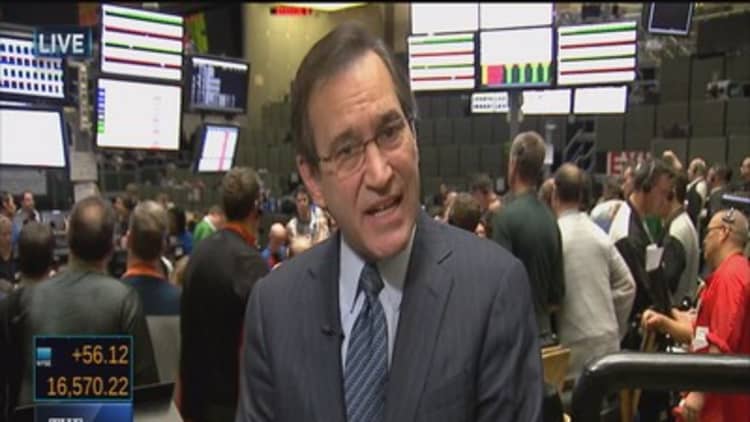The dollar rose for a third straight session on Tuesday as gains on Wall Street and calmer financial markets enhanced appetite for currencies that offer higher yield.
The euro and the yen, currencies with low interest rates used by investors to fund purchases of higher-yielding currencies in risky carry trades, were lower on the day after gains seen in a chaotic first week of the year.
"We're seeing a reversal of what we saw in that first week and the dollar has been benefiting as a result," said Sireen Haraji, currency strategist at Mizuho Securities in New York.
Commodity currencies traded in a back-and forth range as oil gave up initial gains and hit a fresh 12-year low. The Canadian dollar hit its lowest mark since May 2003 against its U.S. counterpart, according to Dow Jones.

Investors remained cautious, however, despite a rebound in stocks. Attention remained fixed on the gyrations of China's yuan and a fall in oil prices to $30 a barrel.
The dollar was up 0.29 percent against a basket of currencies to 99.01.
The euro, meanwhile, lost 0.03 percent versus the dollar to $1.0857, while the dollar was up slightly at 117.71 .
"For now, continued turmoil in global stocks, commodities and a falling Chinese yuan will keep the euro well supported as these factors could severely limit the Fed's ability to follow through with additional monetary policy normalization throughout 2016," said Omer Esiner, chief market analyst at Commonwealth Foreign Exchange in Washington, referring to expected increases in benchmark U.S. interest rates by the Federal Reserve.
Sterling fell 0.71 percent against the dollar to $1.4439, after the release of poor British manufacturing numbers. Earlier, it hit a 5-1/2- ear low as British industrial output in November suffered its sharpest fall since early 2013.
In China, yuan offshore rates steadied, but their convergence with the officially controlled onshore market was driven by official moves to push implied overnight rates in Hong Kong as high as 94 percent.
Fund investors, bankers and corporate sellers have taken a negative view on the yuan since late December.
Chris Morrison, head of strategy at London-based Omni Partners' Macro Fund, has been betting against the yuan since the start of 2014.
"The interest in this trade has just risen exponentially. I have received 50 emails per day on the RMB (yuan) in the last week," he said.
"We saw that as a short-term reason to reduce our position size. There will be a consolidation ... But we remain very committed to the trade."
Correction: This story has been updated to reflect that the Canadian dollar hit its lowest levels since May 2003.



